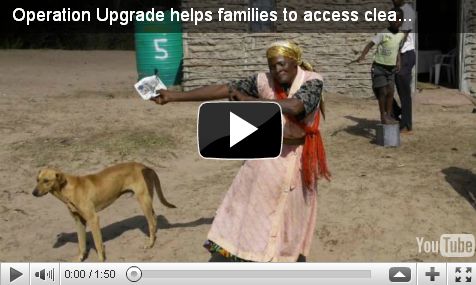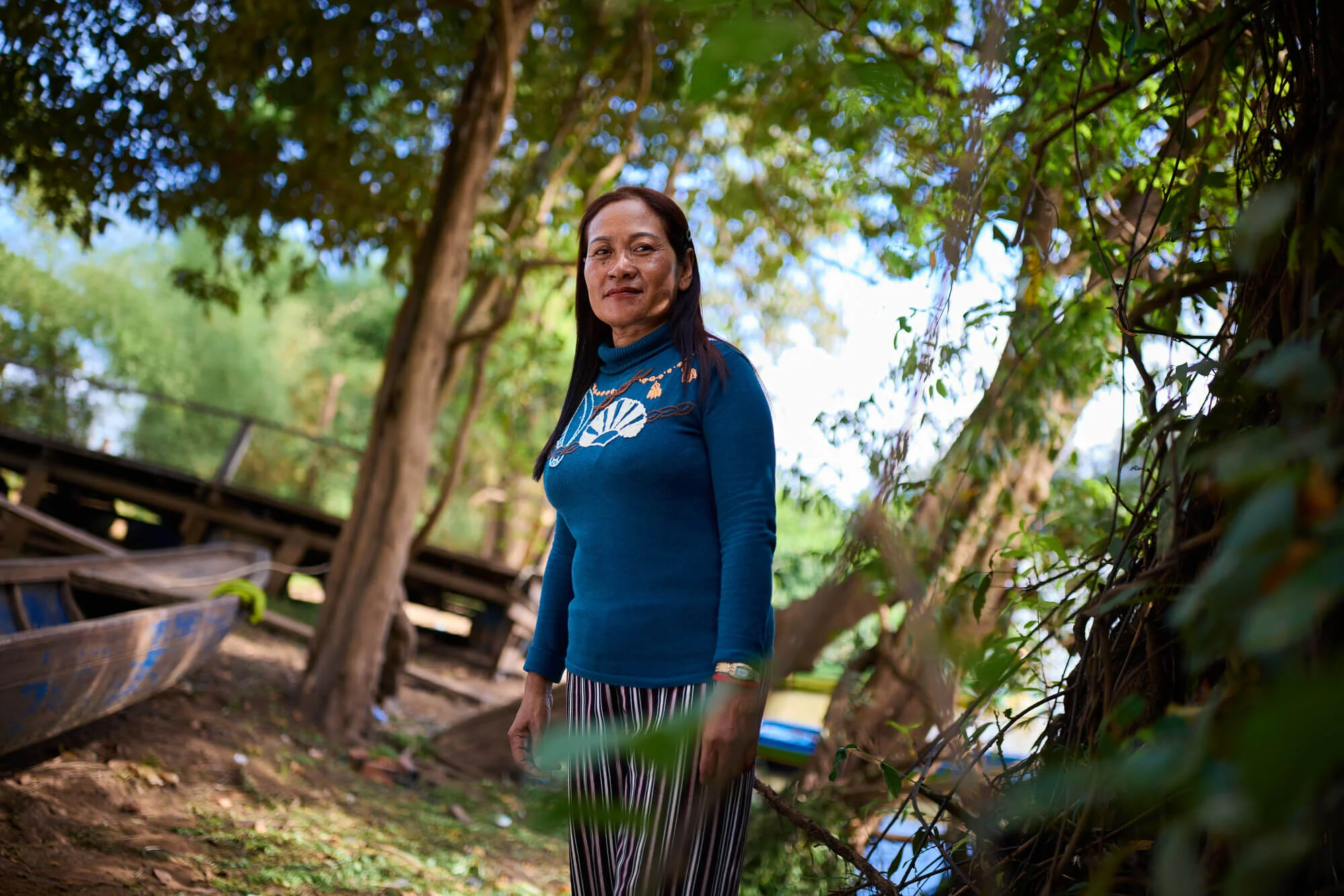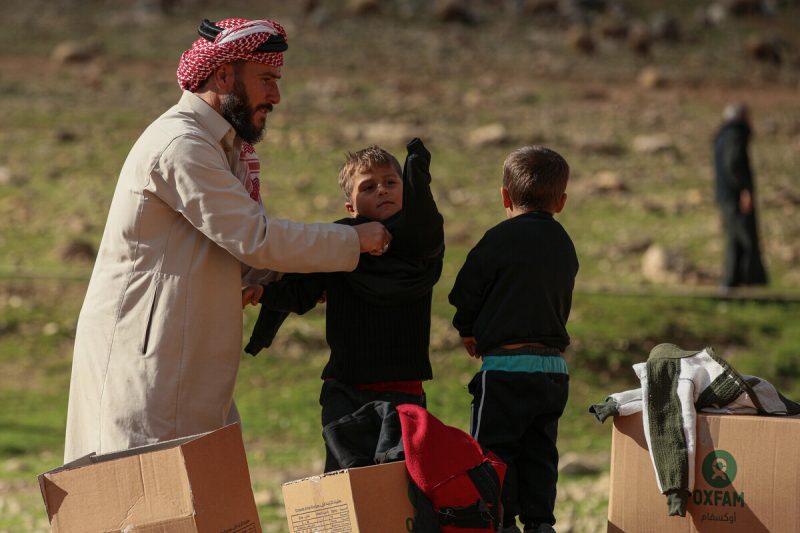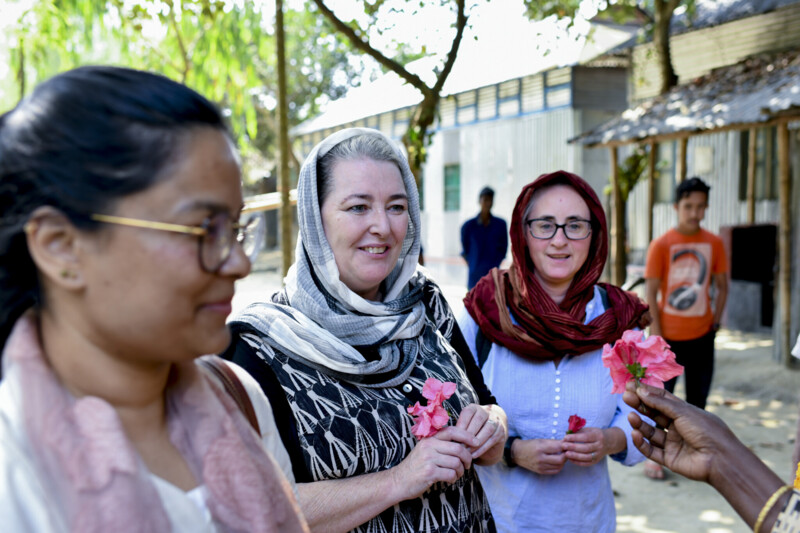A seven-year drought is forcing poor families in KwaNibela, South Africa, to take desperate measures to get water to drink.
For the families who live in KwaNibela, a remote part of KwaZulu-Natal, South Africa, water has become a precious commodity. The once lush green landscape is now bone-dry. Streams have dried up, trees are a weary grey and the vegetation is yellow. The soil is like beach sand, making growing crops and vegetables near impossible. It’s been more than a year since the last heavy rainfall.
It’s a brutal existence. Women and girls must walk up to 12 hours a day, struggling under the weight of 25-litre containers or heavily-loaded wheelbarrows, to collect water for their families – water that contains toxins and pollutants that make them sick.
The young girls end up doing prostitution for the sake of getting water for their families. It’s bad. It’s seriously bad.
But they simply have no other option. It’s a case of drink that or drink nothing. The situation is so dire that a “black market” for water has surfaced, with water being sold at exorbitant prices to those whocan afford it. Some women have resorted to trading sex in exchange for water.
“People are selling water illegally and if you don’t have the money for water, then you’re stuck,” says Pinky Petersen, a program coordinator with our local partner Operation Upgrade. “The young girls end up doing prostitution for the sake of getting water for their families. It’s bad. It’s seriously bad.”
Families in this area have to survive on less than 10 litres of water per person, per day. It might seem like a lot, but in Australia, that’s about the equivalent of a standard toilet flush, a 45-second shower or running a garden hose for 30 seconds.
Bakhethile Gettinah Khumalo, a widow with six sons and nine grandchildren who lives in Nquitshini village, says that having so little water means making some tough decisions. “We use the water we collect for drinking, cooking, washing and bathing. We then use the water left over from washing dishes and washing clothes to water the garden,” Bakhethile says.
“We have to ration the amount of water we drink. Each child gets a half a glass of water a day to drink. For adults it’s one glass a day. We know this water can make us sick. We get diarrhoea, stomach problems and skin diseases.”
Operation Upgrade has provided Bakhethile’s family with a 2,500-litre rainwater tank so that when precious rain does fall, they can collect it. Bakhethile also received training in how to disinfect water to make it safer to drink, recycle water to make it last longer and prevent diseases by washing hands and cleaning water containers.
“When I received the water tank I was so excited. I actually even cried because of happiness,” Bakhethile says. “The water we get from the tank is cleaner than the water from the dam. We are now able to bath, we are now clean … Because we are using clean water and drinking clean water, it is much better for us. We are healthier”.
Because we are using clean water and drinking clean water, it is much better for us. We are healthier.
Operation Upgrade has so far distributed household and communal rainwater tanks to families in the area, as well as 80 “hippo” rollers. A hippo roller is essentially an 80-litre water barrel that can be turned sideways and attached to a long handle so that it can be rolled for easy transportation.
Alfinah Makasi Ngubane, aged 59, says the hippo roller she received a year ago, has made the back-breaking task of collecting water much easier. “I used to carry three 10-litre containers to the well — one on my back and one in each hand,” Alfinah explains. “It’s about a three-hour walk to the well and then back again. But now with the hippo roller, I can collect 80 litres in one trip and it is much easier for me.”
Operation Upgrade’s task of selecting which families will receive tanks and hippo rollers is a difficult one.Unfortunately some families miss out.
Joyce Ndlovu’s family is one of those still waiting for assistance. Abandoned by her husband, Joyce admits that every day is a struggle for survival. “I wish for a better life for myself and my children, I have really worked hard to raise my children,” Joyce says tearfully. “Starvation is our biggest problem … sometimes we will go to sleep without having any food”.
“I have to go every day [to collect water] because I can only carry one 25-litre container. There are eight of us living here and we all have to survive on those 25 litres of water. With that … we have to bath, we have to cook, we have to do the washing.”
Joyce leaves home at 3am every day to collect water from a privately-owned well. She doesn’t arrive home again until 1pm. She always travels with a group of women because the journey can be dangerous.
“We either have to ‘steal’ the water or we have to wait for the owner to come and ask for permission,” Joyce says. “There will be a queue of people waiting and so there will be five people fighting for that small bit of water.”
As the KwaNibela area heads into another scheduled rainy season, local people are looking anxiously to the skies for much-needed relief — even if it’s just a few drops.
“Water shortage is the main problem we face,” Nquitshini village chief Lazarus Mduli says. “Without water, life just stops.”



